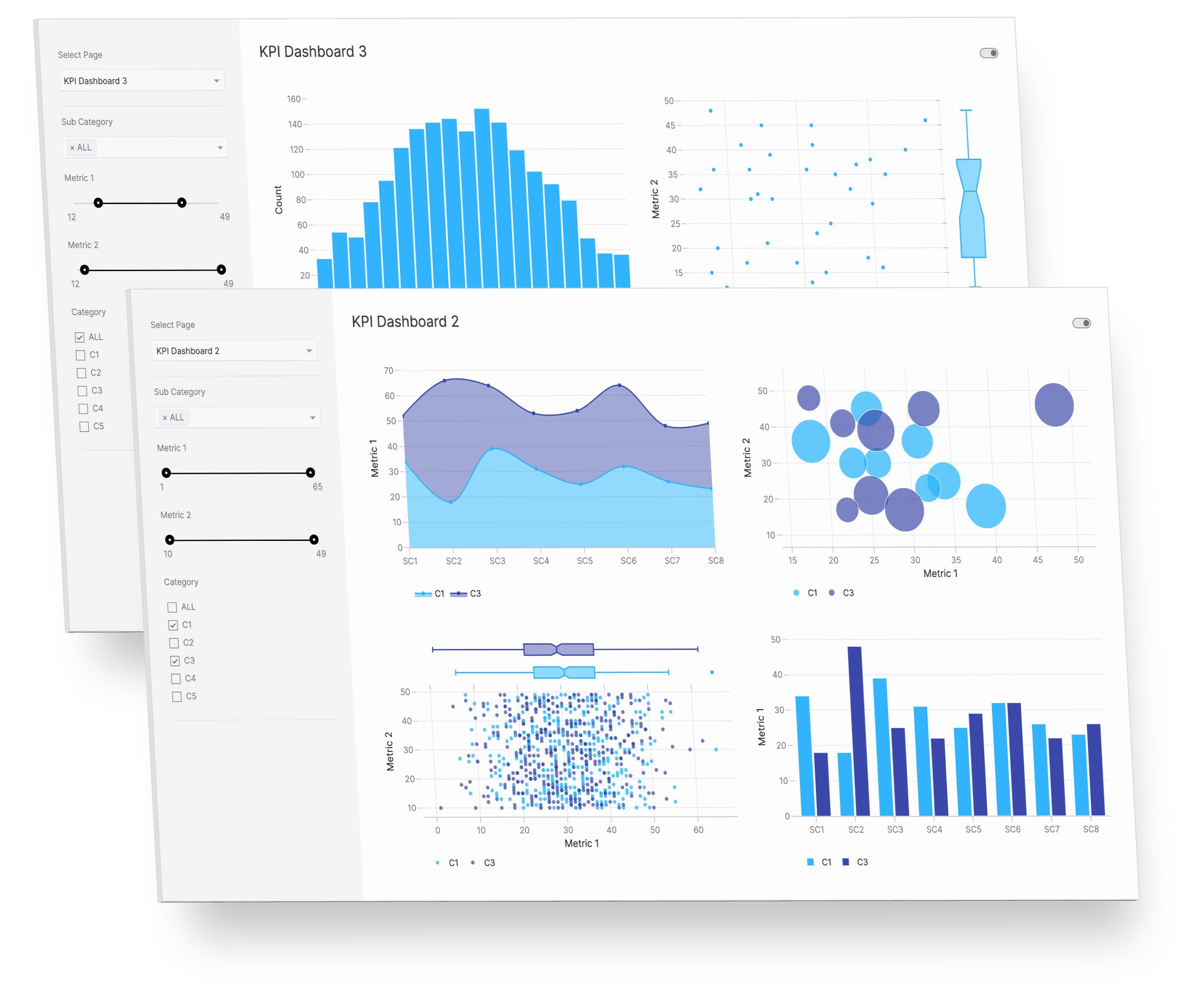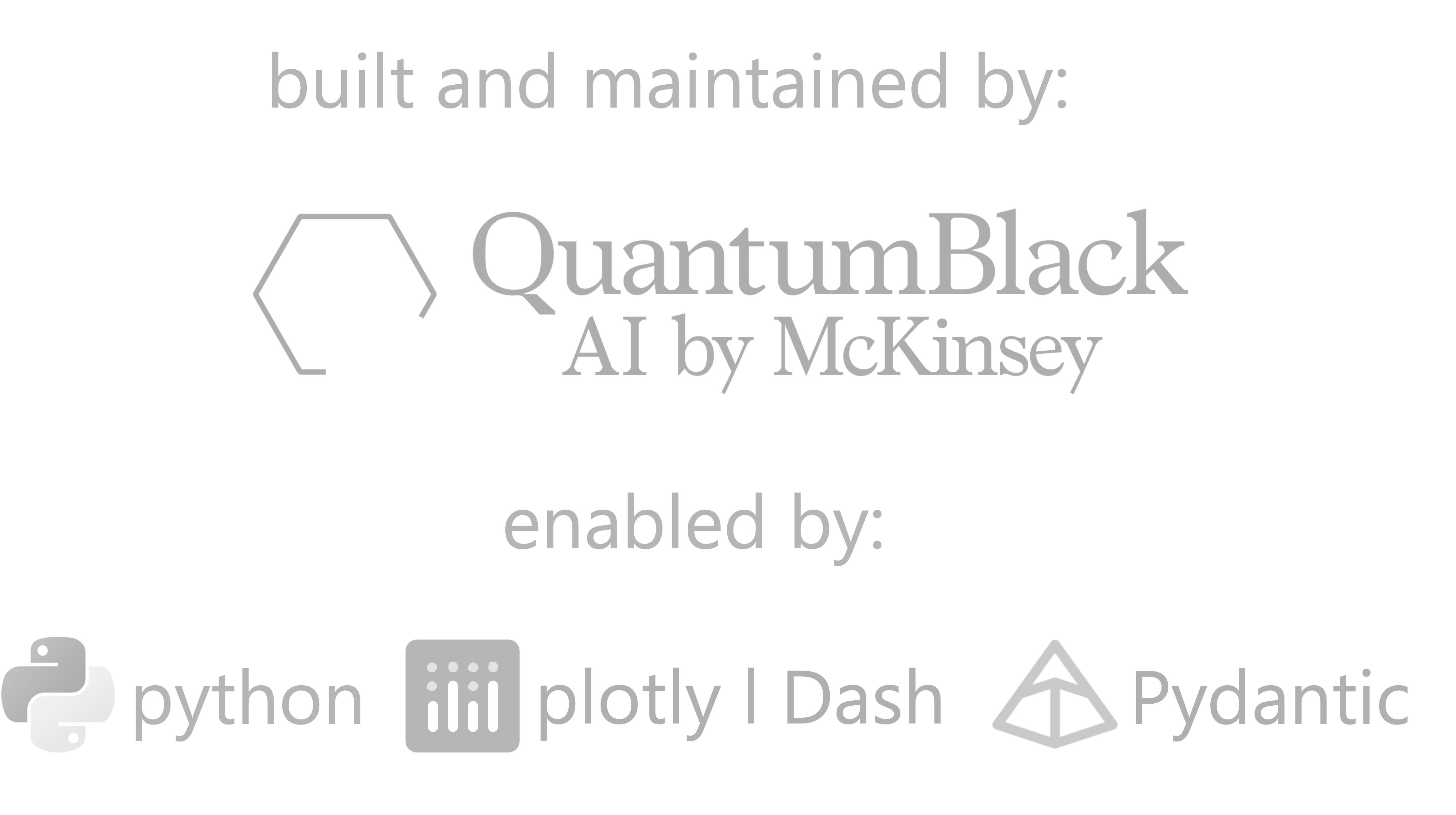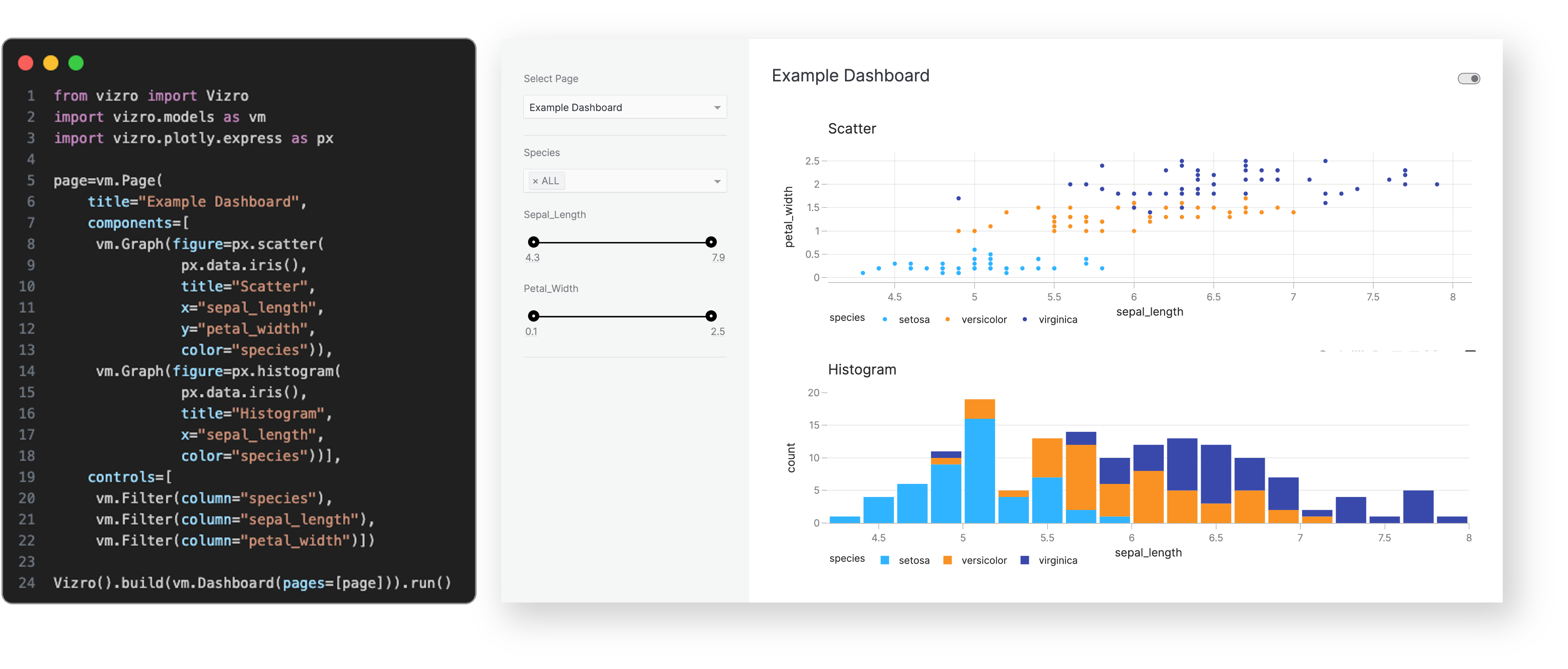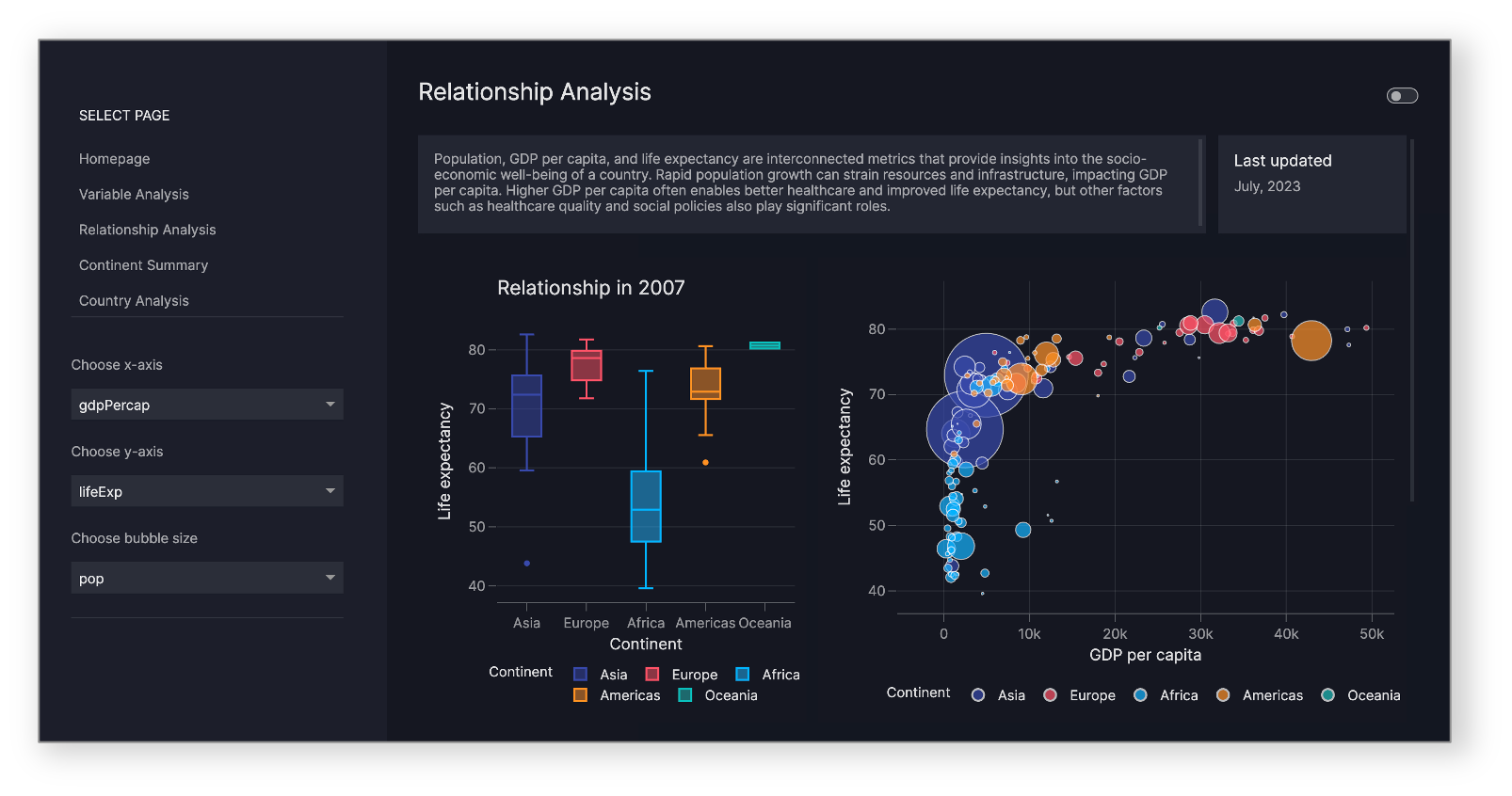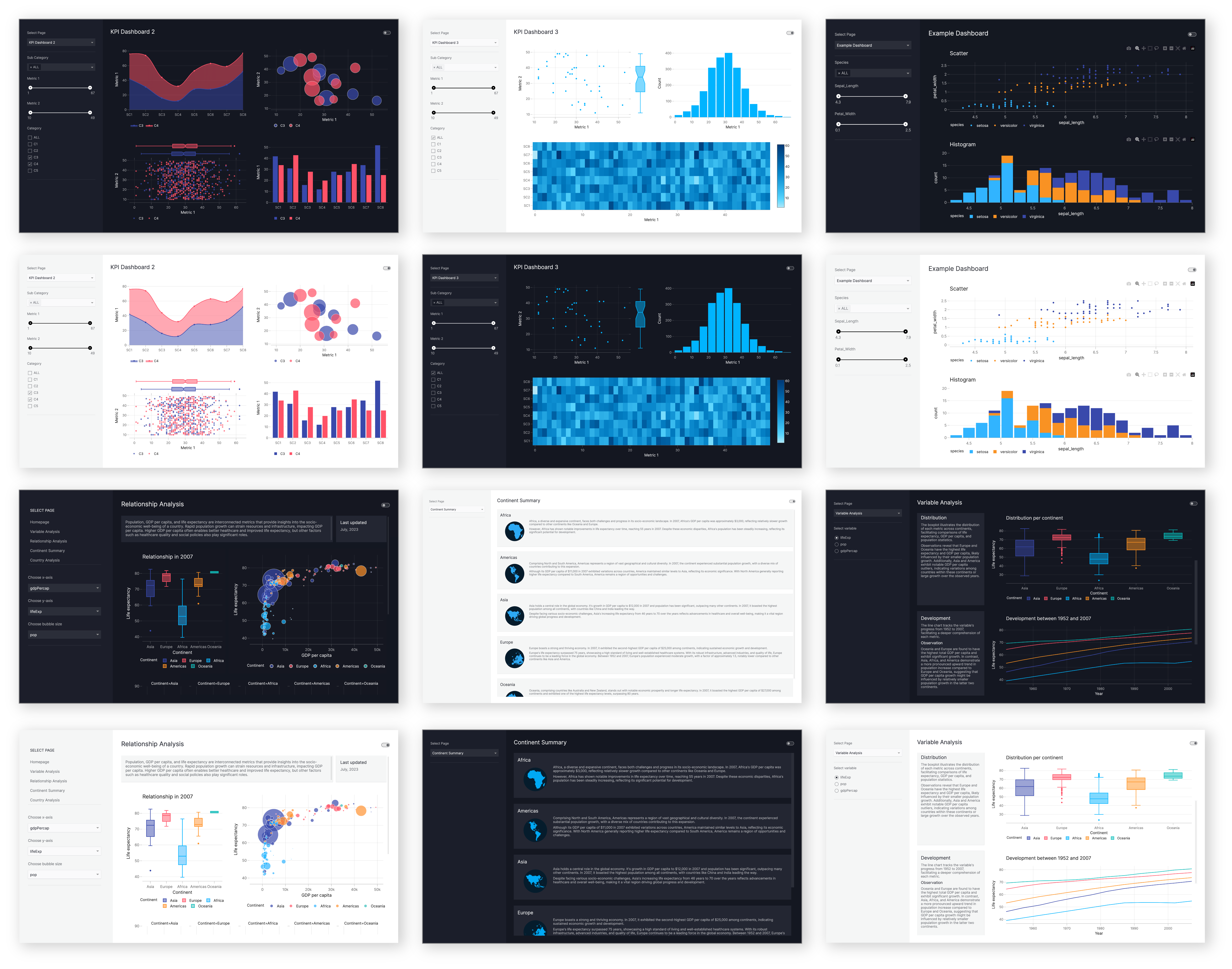
Visual Intelligence. Beautifully Engineered
Vizro is a toolkit for creating modular data visualization applications
Rapidly self-serve the assembly of customized dashboards in minutes - without the need for advanced coding or design experience - to create flexible and scalable, Python-enabled data visualization applications.
Use a few lines of simple configuration to create complex dashboards, which are automatically assembled using libraries such as Plotly and Dash, with inbuilt coding and design best practices.
Define high-level categories within the configuration, including:
- Components: create charts, tables, input/output interfaces, and more.
- Controls: create filters, parameter inputs, and custom action controllers.
- Pages, layouts and navigation: create multiple pages, with customizable layouts and flexible navigation across them.
- Actions and interactions: create interactions between charts, and use pre-defined or customized actions (such as exporting).
Configuration can be written in multiple formats including Pydantic models, JSON, YAML or Python dictionaries for added flexibility of implementation.
Optional high-code extensions enable almost infinite customization in a modular way, combining the best of low-code and high-code - for flexible and scalable, Python enabled data visualization applications.
Visit the "Why Vizro" section to see a more detailed explanation of Vizro use cases.
vizro-ai is a separate package and extends Vizro to enable the use of natural language queries to build Plotly charts.
See the Vizro-AI documentation for more details.
You can see Vizro in action by clicking on the following image or by visiting vizro.mckinsey.com.
pip install vizroSee the installation guide for more information.
The get started documentation explains how to create your first dashboard.
See the how-to guides for step-by-step instructions on the key Vizro features.
This repository is a monorepo containing the following packages:
| Folder | Version | Documentation |
|---|---|---|
| vizro-core | Vizro Docs | |
| vizro-ai | Vizro-AI Docs |
We encourage you to ask and answer technical questions via the GitHub Issues. This is also the place where you can submit bug reports or request new features.
The contribution guidelines explain how you can contribute to Vizro.
You can also view current and former contributors.
See our security policy.
vizro is distributed under the terms of the Apache License 2.0
